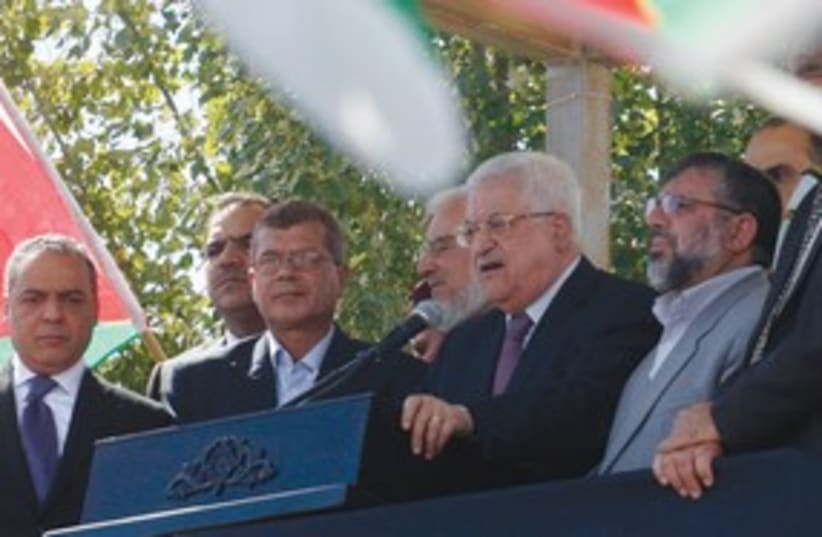Jerusalem Post staff contributed to this report.
Abbas to pay grants to prisoners released in Schalit deal
Hamas official says several former prisoners have been summoned for interrogation by PA security forces; Meidan to meet with Shamgar C'tee.

Jerusalem Post staff contributed to this report.